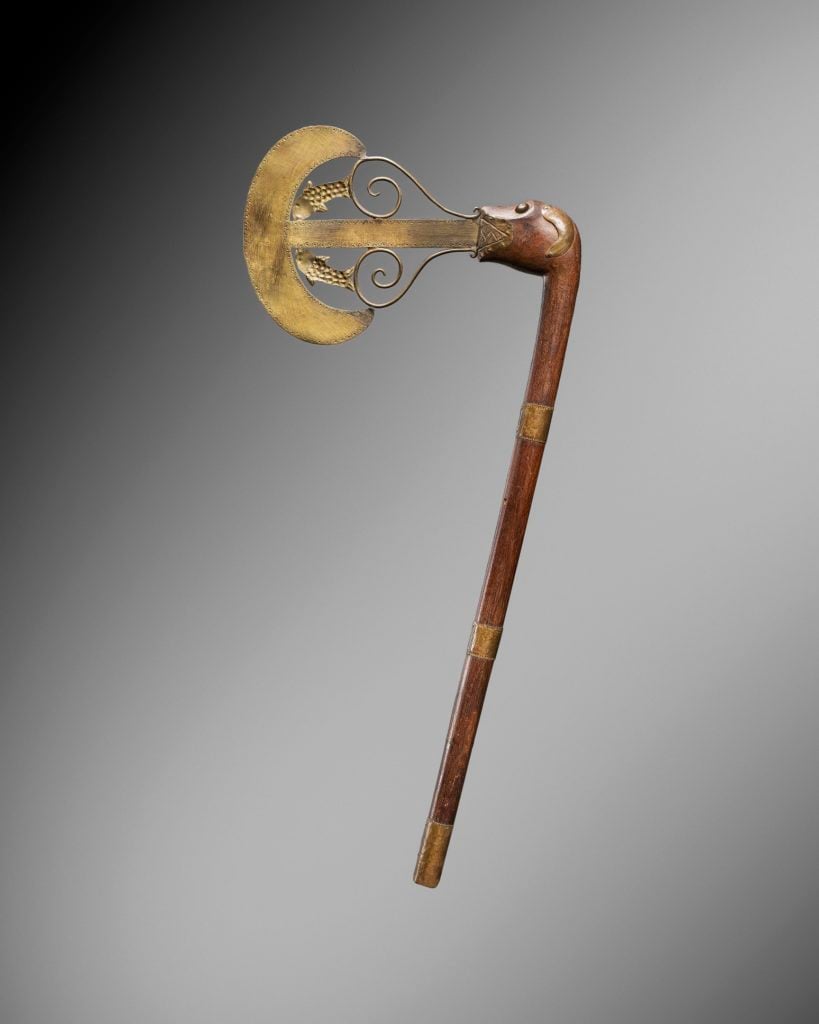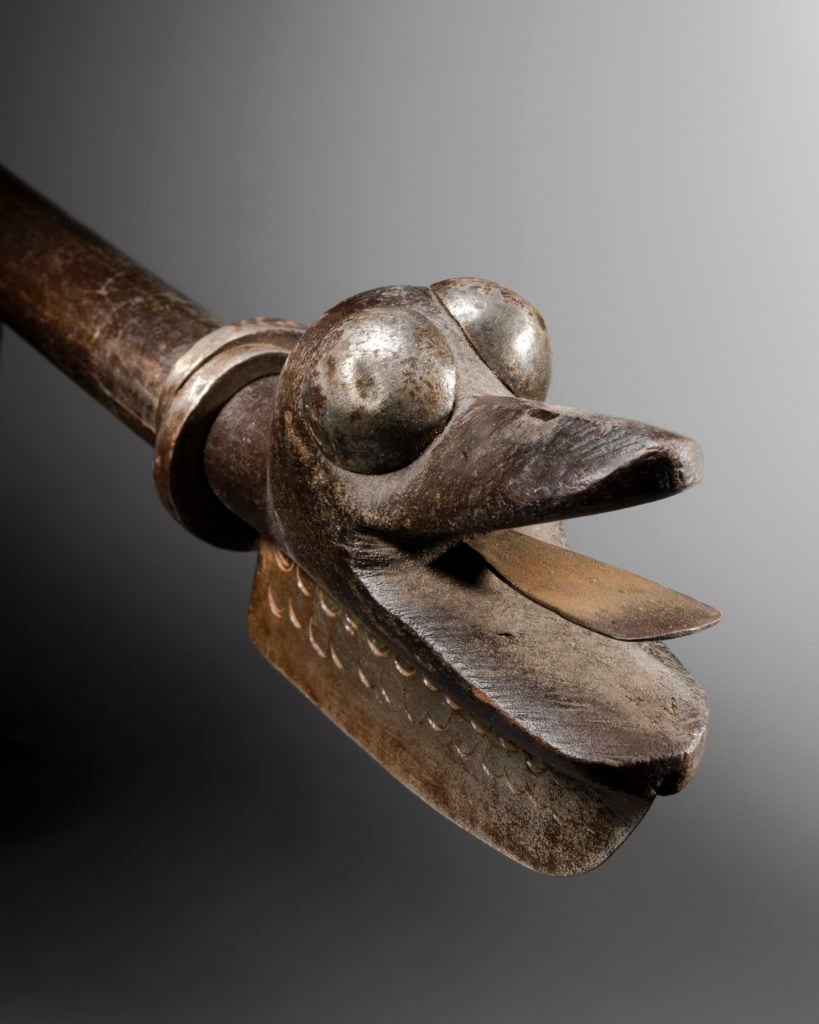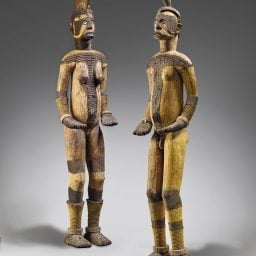A group of antiques dealers in France joined forces to buy 27 objects looted from Benin in order to return them to Africa. The private initiative led by a Paris-based art dealer has upped the ante on the restitution of African art looted during the colonial era, as French museums face mounting pressure to respond to a groundbreaking report on the subject commissioned by President Macron.
Macron pledged more than two years ago to return African cultural heritage held in French museums, but little movement has been made since. The valuable items from Benin, which were on offer at auction, will now go on display at a museum in the country, which preserves the the royal heritage of the Abomey kings.
The restituted objects will join the collection of the Petit Musée de la Récade in Lobozounkpa, a small museum dedicated to recades, or ceremonial staffs. The carved recades were important symbols of power of the kings of Dahomey, who ruled the West African kingdom from the 17th to the end of the 19th century.
The items, which include recades, sabers, and Fon objects of worship, are being returned today, January 17, thanks to an initiative organized by the Paris-based art dealer Robert Vallois, who runs the Collectif des antiquaires in Saint-Germain-des-Prés.
“The return of our remnants, the recades of our Kings to their native land, has made an impression and continues to awaken the consciousness of our audiences,” the museum’s curator, Marius Jidé Dakpogan, says in a statement. “May this effect endure over time! Especially for a youth that knows almost nothing of its history.”

Zoomorphic recade with fish and a ram spitting lightning. Abomey, ancient kingdom of Danhomè, Benin ©Vincent Girier Dufournier.
The objects were sold at auction in Nantes last year. They come from two European collections that can be traced back to the era of colonialism: that of Alfred Testard de Marans, who was involved in a military expedition to Dahomey in 1890, and that of Father Le Gardinier, a priest who took part in the mission.
Robert Vallois has been supporting the Benin museum since 2015, when his collective, along with a few private collectors, donated 43 objects to form its founding collection. Since then, Vallois has been steadily acquiring artifacts for the museum, including on eBay for prices as low as €250 ($277). Previously, he bought a recade that belonged to King Glélé for €61,500 ($68,000) at a public sale in France, according to RFI Afrique.
Among the most remarkable objects in the museum’s collection is a royal recade depicting a shark, the heraldic symbol of the king. “Not all the pieces are historical,” Vallois says in a statement, but they are “fantastic.”

Zoomorphic snake-head recade, detail. Abomey, ancient kingdom of Danhomè Benin ©Vincent Girier Dufournier.
The museum is housed within a cultural space called Le Centre, just outside of Cotonou. The institution has also acquired some 31 recades made by contemporary artists during residencies at the space.
The French president Emmanuel Macron pledged in a historic speech in 2017 to return African heritage held in French museums, but has since faced criticism for slow progress on the issue. Two years ago he announced that 26 objects looted from the royal palace of Abomey in 1892 by French troops would be sent back to Benin, but the objects remain in the Musée du quai Branly-Jacques Chirac in Paris. The French culture minister Franck Riester recently promised to return them by 2021.










